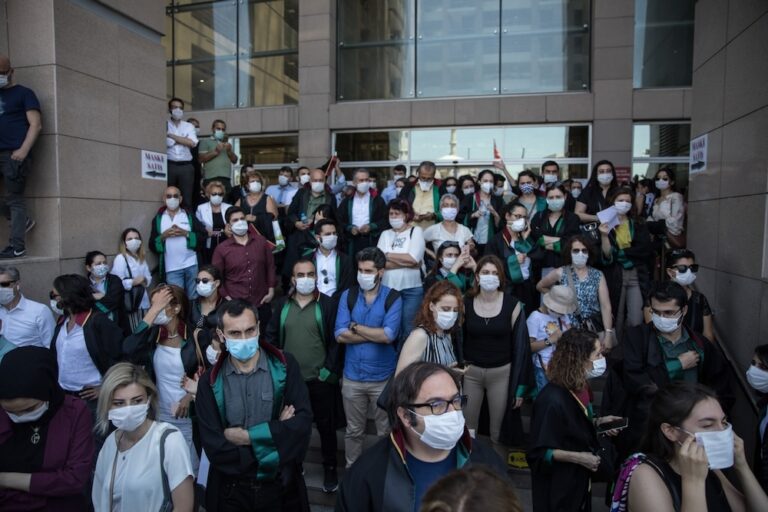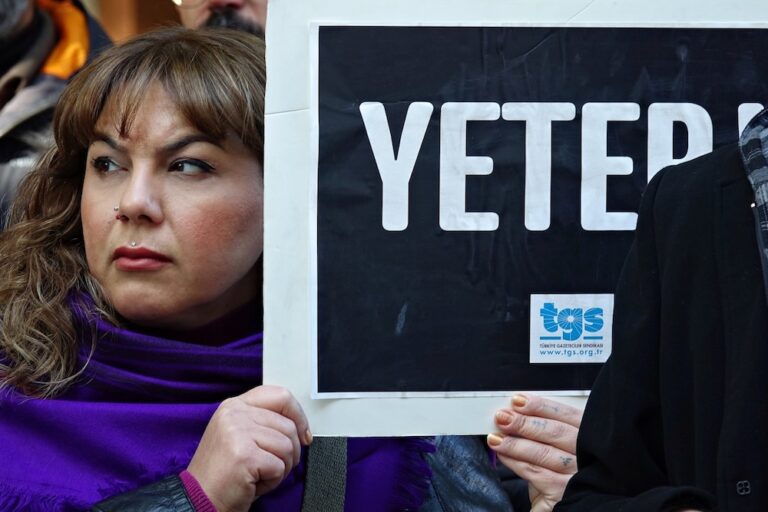The European Court of Human Rights unanimously ruled that the 2009 blocking of access to Google Sites in Turkey violated freedom of expression rights.
(ARTICLE 19/IFEX) – 18 December 2012 – Today, the European Court of Human Rights in Strasbourg ruled in the case of Ahmet Yildirim v. Turkey (no. 3111/10) that blocking access to an entire online platform was a violation of the right to freedom of expression. The Court found that the legal framework in place in Turkey was inadequate and failed to provide sufficient safeguards against abuses. ARTICLE 19 welcomes today’s decision as a timely reminder that laws restricting the Internet must be clear and provide adequate safeguards for the protection of fundamental rights, including freedom of expression.
The Court unanimously held that the blanket blocking of access to sites.google.com breached the right to freedom of expression.
“This decision is a victory for online freedoms at a time when governments around the world increasingly seek to regulate the Internet,” says Dr. Agnes Callamard, ARTICLE 19 Executive Director.
“Today’s decision is a wake-up call for states that sweeping blocking injunctions are a serious violation of free speech on the Internet,” she added.
The case against Turkey was brought to the European Court by Ahmet Yildirim, a Turkish national who owns and manages a website hosted by the “Google Sites” portal. Yildirim used the website to publish his own academic work as well as his opinion and comments on various matters.
In 2009 the Denizli Criminal Court issued an order to block access to another site on which insults to the memory of Atatürk, the founder and first president of the Republic of Turkey, had allegedly been published in breach of Turkish law. The site was also hosted by the Google Sites platform.
Although neither Google Sites nor Yildirim’s own site were covered by these proceedings, the Turkish Telecommunications and Electronic Data Authority (TIB) responsible for implementing the order advised the criminal court that it was obliged to make it technically impossible to access sites.google.com. Accordingly, the criminal court ordered that access to the entire sites.google.com platform should be blocked.
Yildirim complained that it was impossible for him to have access to his Internet site on account of a measure ordered as part of a criminal case that had no connection with his site. Relying on Article 10 of the European Convention on Human Rights, he claimed that this measure breached his right to freedom to hold opinions and to receive and impart information and ideas.
The European Court found that the blocking order amounted to a violation of Yildirim’s right to freedom of expression for the following reasons:
– In order to comply with the requirements of Article 10 of the European Convention, a restriction must be prescribed by law, which means it must be formulated with sufficient precision to enable individuals to regulate their conduct. However, the relevant Turkish law did not authorise the wholesale blocking of an entire online platform such as Google Sites. The law also failed to provide sufficient safeguards against potential abuses.
– There was no evidence that Google Sites had been informed that it was hosting content held to be illegal, or that it had refused to comply with an interim measure concerning a site that was the subject of pending criminal proceedings.
– The law had conferred extensive powers on an administrative body, the TIB, in the implementation of a blocking order originally issued in relation to a specified site. The facts of the case showed that the TIB had had little trouble requesting the extension of the initially limited scope of the blocking order.
ARTICLE 19 fully agrees with the Court that sweeping blocking orders such as the one in the present case violate the right to freedom of expression. Blocking access to an entire platform fails to satisfy the requirement that any restriction on the right to free expression online must be strictly limited.
Restrictions on freedom of expression must have a clear legal basis, the interference must pursue a legitimate aim, and the restrictions must be necessary and proportionate. Blocking access to an entire platform just because of some illegal content is clearly a disproportionate measure.
ARTICLE 19 calls on the Turkish Government to fully implement the decision and to refrain from blocking access to entire platforms, which contain perfectly legitimate online content. Any blocking decision must take due account of its potential impact on the right to freedom of expression.
WHAT OTHER IFEX MEMBERS ARE SAYING
End overly broad website blocking (Human Rights Watch)
In this case, the Denizli Court and the Telecommunications Directorate acted under Turkey’s Internet blocking regulation, Internet Law 5651. Blocking orders have been directed against several international websites that host large volumes of user content, including YouTube, Blogspot, and WordPress. In addition, the Directorate and local courts have blocked news sites with a pro-Kurdish political line and online forums central to the Turkey’s LGBT community, even though there is no clear legal basis under Law 5651 for blocking them. A website can be blocked under Law 5651 only if there is “sufficient suspicion” that certain crimes listed in the law are being committed on the website. Given the arbitrary and often overbroad Internet blocking practices in Turkey, the OSCE Representative on Freedom of the Media, the Commissioner for Human Rights of the Council of Europe, and the European Commission have all called on the Turkish government to revise Internet Law 5651 substantially or repeal it.


